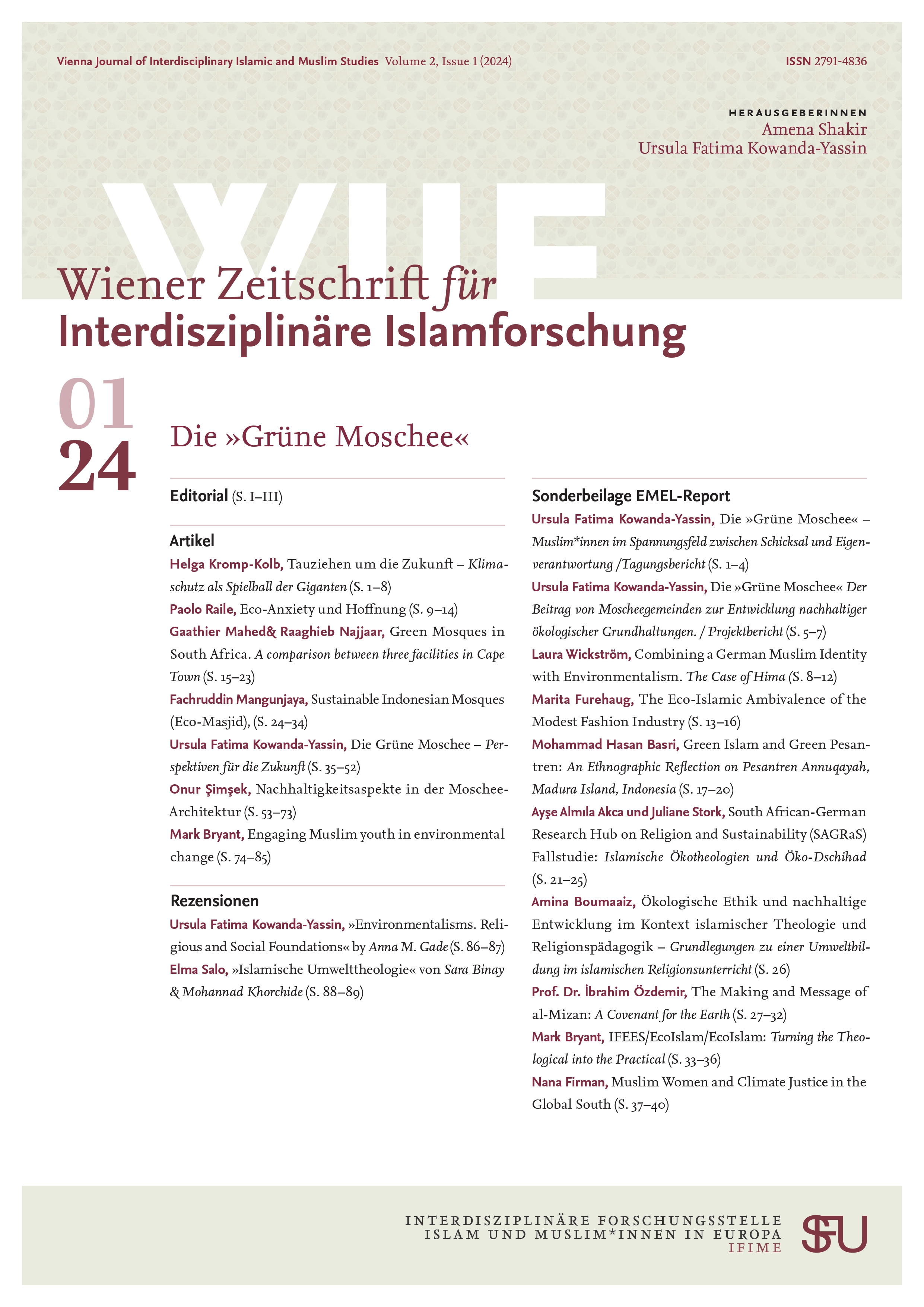Schlagwörter:
awqaf, South Africa, green mosques, sustainable investing, water saving
Abstract
We present the environmental sustainability initiatives undertaken by three mosques in Cape Town, South Africa. These houses of worship are located in close proximity to one another yet represent completely different socio-economic sectors of society. The water- and energy-saving activities undertaken at these facilities are primarily focused on minimising the reliance on municipal resources and cutting costs related to mosques’ daily operations. It is clear that socio-economic standing plays an integral role in terms of the ability to execute environmental initiatives, as the available funding dictates the extent of projects undertaken. Water use reduction and energy saving are the most important factors, primarily forming the backbone of the operational costs. Grey water re-use and rainwater harvesting were also options explored, as well as the installation of boreholes to minimise reliance on municipal water supply. Future projects should include solar installations and possibilities for composting, including subsequent business opportunities stemming from on-site activities to create revenue for the Masjid facility so that it can be sustainable in its long-term operations. It is shown that sustainable investing through the use of waqf is also an excellent tool for greening.
Autor/innen-Biografien
-
Gaathier Mahed, Nelson Mandela University
Dr. Gaathier Mahed, is a Senior Lecturer at the Department of Geosciences at Nelson Mandela University, and has a background in hydrogeology with a focus on fractured rock. He holds an MSc in Environmental Science and a PhD in Geology. He has received extensive technical training in aspects of geophysics and isotopes in Germany and Morocco, the latter sponsored through the International Atomic Energy Agency. He has worked in gold, uranium, and coal mining, as well as on shale gas research. He has served in his capacity as a consultant on various projects in the earth sciences for government, industry and academia. Some of the major companies for which he has completed work include SABIC, the City of Cape Town and the Water Research Commission. He has served on technical panels in South Africa to help water research projects to focus on sustainable development. For example, he was involved in a pilot project related to geothermal energy at the Water Research Commission of South Africa. Gaathier also occupies voluntary executive and non-executive board positions at various companies and NGOs. One of the former voluntary positions that he occupied was with Awqaf South Africa, where he gained valuable knowledge and insights into the NGO sector as well as charitable endowments.
-
Raaghieb Najjaar, NYZ Afripeak
Raaghieb Najjaar, studied accounting and auditing and improved himself in risks management and social science. He serves on various boards and governance committees of institutions and as a trustee and board member of various NGOs ranging from educational institutions to healthcare to art foundations. He has authored many institutional reports on finance, risk assessments and governance, and presented papers on community development, including waqf development and community organisations’ functioning in South Africa. He provides training to the refugee business community on business processes and structures. Raaghieb is the founder of NYZ Afripeak, an accounting and management consulting practice based in Cape Town, and he previously served as the CEO of AwqafSA and currently as the CEO of the Student Support & Strategy Foundation. He is also a governor of SACS (South African College High School), the first school in South Africa, and he is currently part of a team commissioned to establish the school’s first endowment fund.
